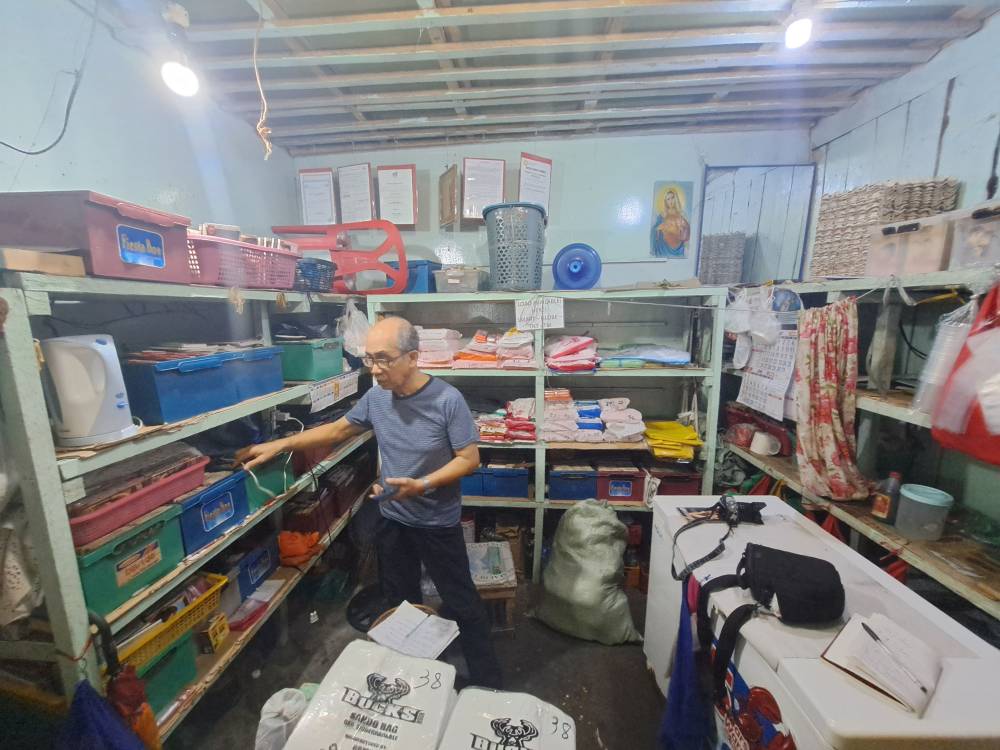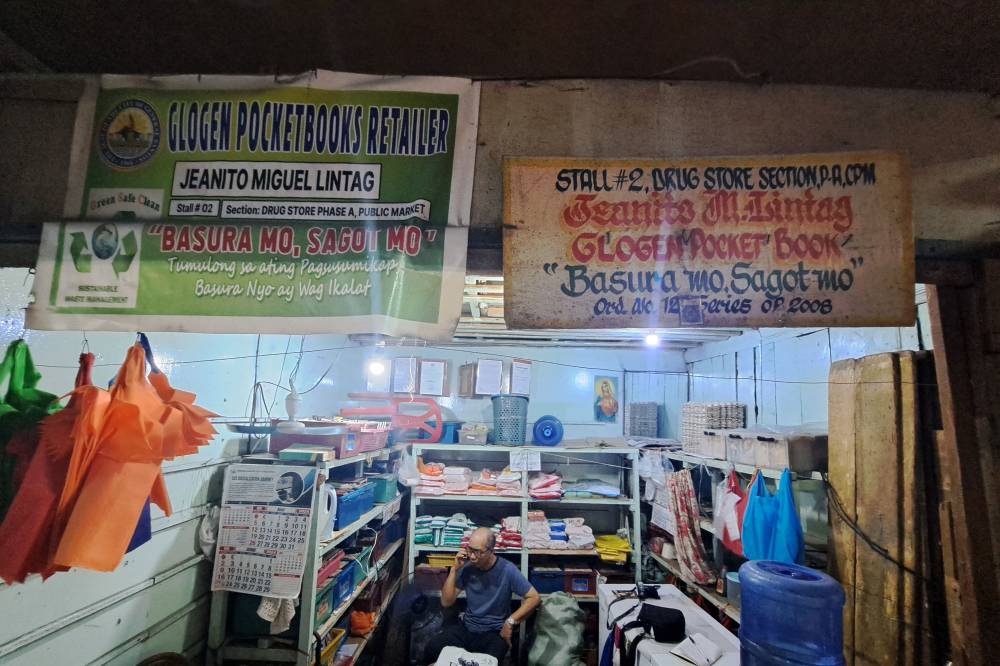Defying trend, GenSan shop still rents out pocketbooks

GENERAL SANTOS CITY—At a stall of the public market here pocketbooks are neatly stacked inside boxes, placed behind cellophanes, candies, biscuits and bottled water, among others.
Mostly with romance as the overarching theme and written in TagLish, or Tagalog-English language, the materials have literally seen the good old days, their covers wrinkled, and the pages yellow, stained and brittle.
Over a thousand titles remained in the only bookstore that literally survived in this public market since romance-themed pocketbook reading became a hit three decades or so ago, at a time when printed Tagalog comics were also in their heyday.
With the advent of the internet in the early 2000s and the availability of cheap smartphones in the last 10 years or so, comics and Tagalog pocketbooks gradually become extinct.
But for the love of reading, Jeanito Lintag defied the odds and in the last 15 years still continue to rent out the thousands of Tagalog pocketbooks that he amassed all along. It was only this year that he finally admitted to himself that the era of pocketbooks had ended.

Still, he did not throw or keep in the storage room his pocketbooks. He still displays them at his stall that screams the trade name “Glogen Pocketbooks Retailer” and “Jeanito M. Lintag Glogen Pocket Book.”
In the heydays, life was good for Lintag, a graduate of Bachelor of Science in Commerce major in economics at the then Notre Dame of Dadiangas College here (now Notre Dame of Dadiangas University). But nowadays, he barely earns from his horde of pocketbooks.
“It’s very minimal. You can’t live with this kind of business anymore. Most days, there’s no income because nobody’s renting,” he lamented.
His “suki” customers are housewives or storekeepers, who have been renting far and few in between now because of the advent of technology.
Killed by technology
Lintag rents his pocketbooks cheap—from P3 to P5 each. There is no due date but he requires renters to deposit between P10 to P100, depending on the thickness or age of the pocketbook. Unlike in its prime, he slapped a penalty of P1 per day for each book that’s not returned on time.
“Technology killed my pocketbook business,” Lintag stressed.
With the internet now common in many parts of the Philippines, even in the mountains where “piso Wi-fi” is available, readers have resorted to online sites, accessing Wattpad that offers free reading of stories that used to be contained in pocketbooks.
Lintag did not want to dispose of his pocketbooks because “reading is my major advocacy.”

His collections include those published by Precious Hearts Romance, Special Valentines Romance, Valentines Romance and Pinoy Romance, among others.
When he ventured into comics and pocketbooks decades ago, his hope was for the Filipino youth to be wide readers even in their own language, just like citizens of Japan and South Korea who loved to read in their own languages, a habit which he believed helped these countries become progressive.
His eyes beamed when he recalled those years in the local public market when young and old alike would rent comics and sit down flipping through the pages, eventually deeply drowned in their own worlds by the magic of words.
“Now, you seldom see students or young people reading books,” Lintag said. “Mostly, they’re playing games or scrolling social media on their cellphones.”
Because of the “poor reading habits” of the new generations, “they have poor vocabulary and comprehension, writing in ‘jejemon,’” he said, referring to a pop culture phenomenon in the country where an individual, usually young people, alters the established language—either English or Filipino—to the point of incomprehensibility by others who are not in such practice.
Since he was not earning much from his pocketbooks, Lintag started selling cellophane bags this year, aside from candies, biscuits, soft drinks and bottled water—like a mom-and-pop store—to augment his income. He also distributed orders from online shops just within the vicinity of the public market for extra cash.
But he could not let go or throw away his pocketbooks, even if he was the only one doing it now in the public market. His competitors have long stopped doing the trade because it was no longer financially viable.
“I cannot close down this business because I love this, and I am serious with my reading advocacy,” Lintag said.

















